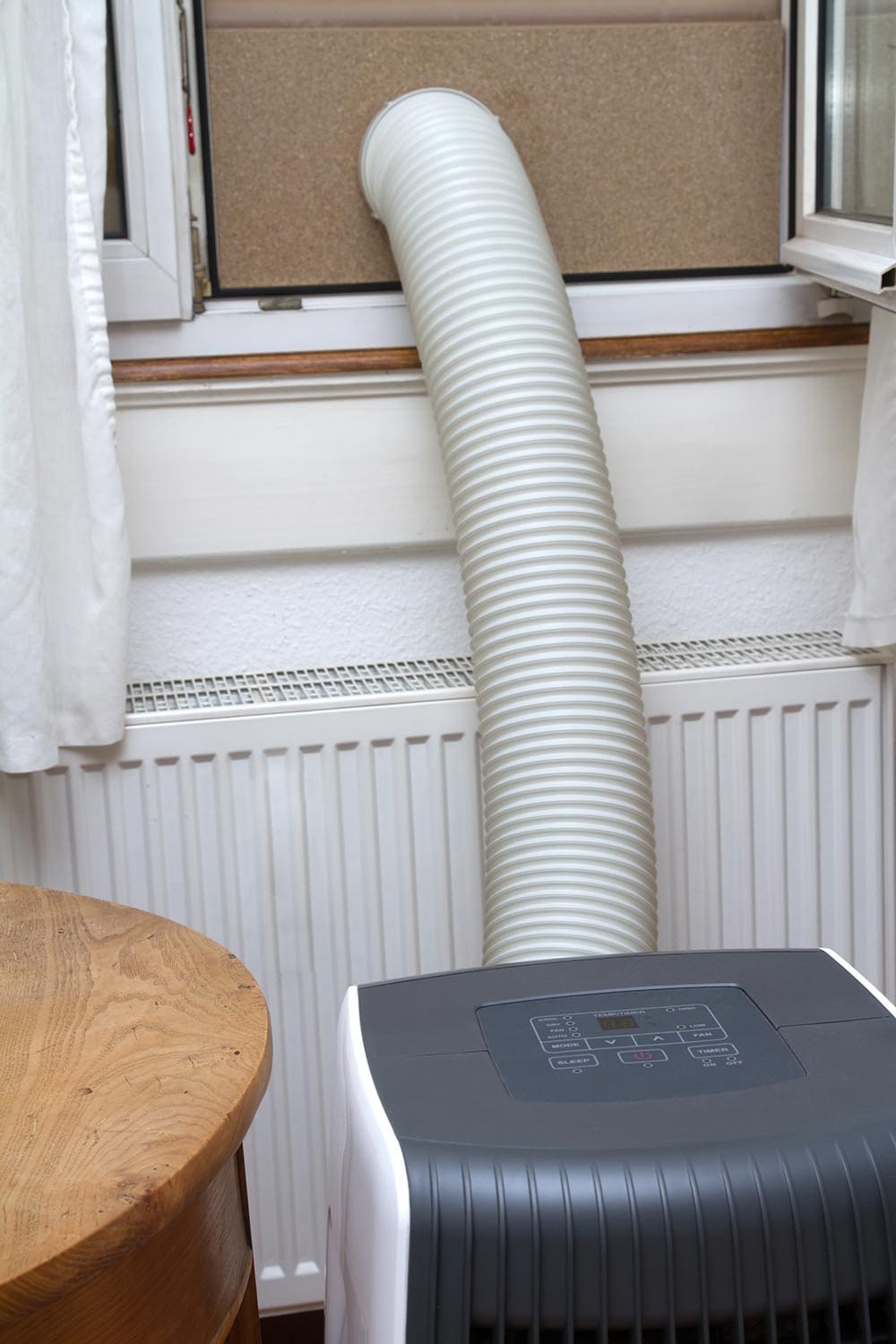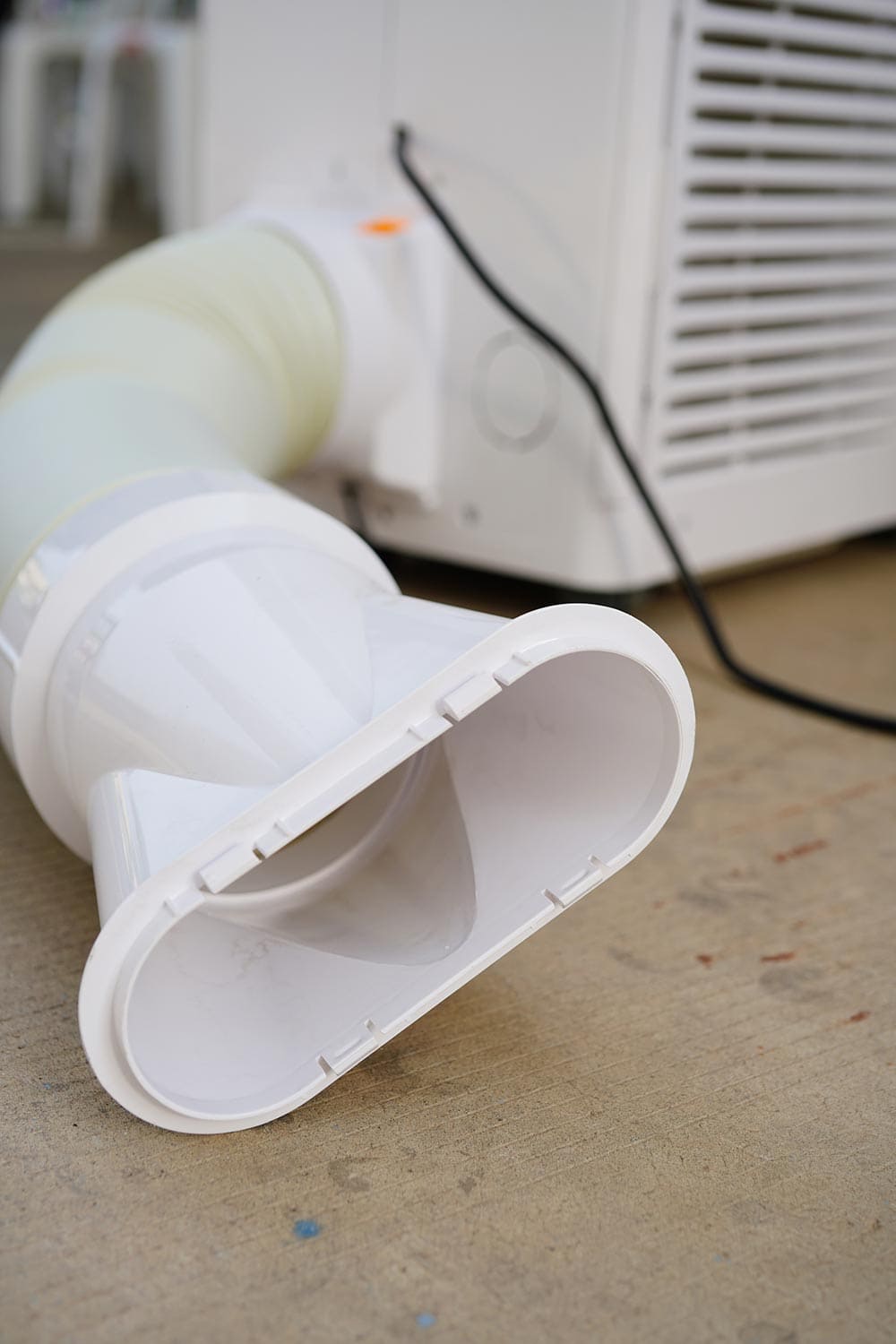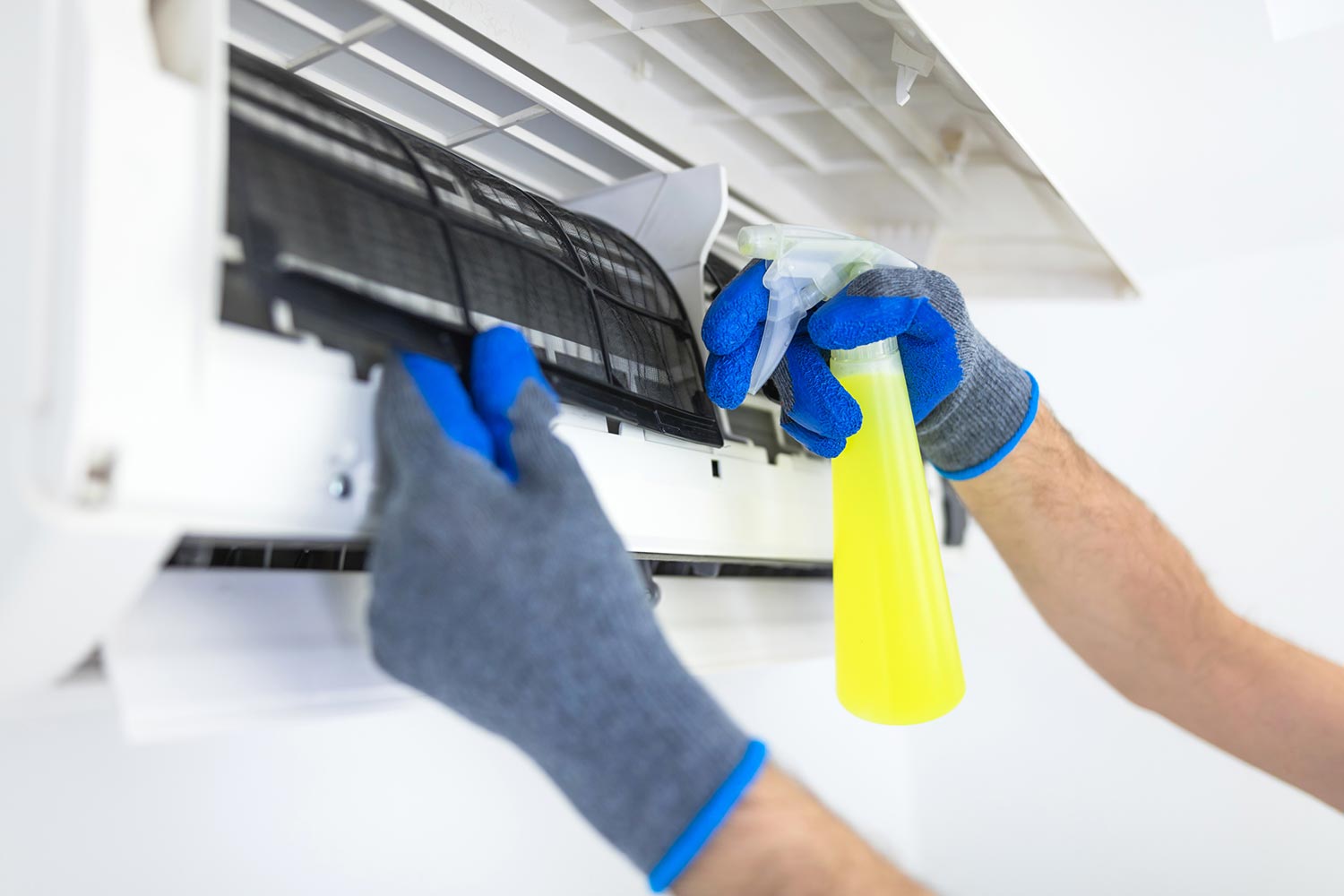To maintain a comfortable indoor environment, all components of appliances like air conditioners should function properly. If you're installing an air conditioner for the first time, especially portable ACs, you might be wondering if you need to go through the hassle of adding a vent. To answer your question, we have conducted thorough research to help you.
Your AC needs to be vented to avoid hot air circulation in a room. Vents are a necessity in any space, including a closet, that houses the air conditioning unit. They keep the pressure inside consistent and filter out debris, smoke particles, and other impurities.
Proper ventilation is vital whether you're using a portable air conditioner or traditional AC. Keep reading as we would discuss the importance of vents for different air conditioners and how to make sure your ACs are appropriately vented.

Should You Vent Your Portable Air Conditioners?
You may not be aware of it, but the air around you is hot. This can make your home uncomfortable, especially during summer. A quick solution to this problem is using a portable air conditioner.
A portable air conditioner is just what it sounds like, a unit that can cool off your home without being permanently installed. Portable air conditioners are an excellent option for those who don't have the space or money to install a central air conditioning system.

Portable air conditioners can cool down living spaces without the need for ducts. However, they do require proper venting to operate effectively.
All types of air conditioners require venting through walls or windows depending on the location you position it. You can use plexiglass to vent hot air outside your enclosed space by cutting a 5-inch hole through the glass and placing it over the open window.
How To Vent Your Portable Air Conditioners
Portable air conditioners come with a kit you can easily install to vent warm air outside your room. Here is a step-by-step guide on how how to vent your portable AC. Note that different brands manufacture portable air-cons. Some might include a specific procedure suitable for venting the particular unit you purchase.

However, these guidelines are general:
- Inspect your room and pick where you would want to mount your AC. This should mostly be close to a door or window as you would be attaching a hose directed outside.
- Attach your exhaust connector, then connect it with the hose.
- The exhaust hose has two ends. Connect the second end through an opening that would direct air outside.
- Install the venting and sliding window kit.
- You can now use your portable AC unit
Finding The Best Location For Your AC Unit
While venting your AC, locating your unit in an area close to a window or door that leads to open space is essential. This will allow for proper circulation and keep contaminated air out. Venting into enclosed spaces can affect indoor airflow by drawing unwanted contaminants inside while not allowing fresh outdoor air inside.
The location of the AC unit is important not only for minimizing cost and installation time but also for maximizing installation efficiency. If you want to install the air conditioner in your home, you need to ensure that there is free space. If not, you might have to do a little remodeling.
The AC unit should also be in an area that has low humidity. You'll also want to avoid areas with excessive sun exposure and cold drafts. You want to place the air conditioner in a central location to cool the majority of your house adequately.
Getting an HVAC Assessment
If you intend to install a vent or perhaps replace the entire unit, especially in a large home, you would need an HVAC assessment. The HVAC assessment will give you a clear idea of what kind of unit you need, the size, and the cost. This will also allow you to decide on the type of installation that will work best for your home.
For example, if your home has a very old wall or ceiling that cannot handle a large unit, it may be best to install a smaller unit to avoid future problems. HVAC professionals can also advise you on the best location to place your air-con unit to ensure proper venting.
Location Details For Venting Your AC
To prevent the blockage of your AC vent, place the lower end of the exhaust hose below or above any flat surface at least eight inches. You should also avoid placing your aircon close to where there are sources of air contaminants.
For example, areas close to sewage dumps or garbage recyclers, as this would lead to the circulation of putrid air within your home. Make sure your AC should be at least 30 feet away from these specified areas.
Improper venting of air conditioners has been associated with different respiratory ailments of people, especially children. Breathing in contaminated air can generally lead to fevers, headaches, and colds.
How Do Air Vents Work & Uses of Your AC Vents
Here are different ways air vents are beneficial for your air-con unit to operate properly.
Maintaining Air Pressure
The air conditioning vent is an integral part of your air conditioner. But how does it work? As hot air enters the house from outside and then cools down, it must be distributed throughout your home. This can be done through vents and registers.
The vents are directed externally through a door or window, and they need to be open for the unit to work properly. Vents help pull in the fresh air and push out stale air. This helps maintain pressure inside your home so that hot air doesn't circulate.
Preserve Air Quality
One of the most important jobs that an air conditioner has is to keep your home clean. It does this by removing all impurities in the incoming fresh air and trapping them inside, stopping any contaminants from entering your house.
Vents remove dust, pollen, mold spores, and other allergens from the air. This is important because indoor pollutants can be three times more concentrated than outside pollutants.
Maintaining good air quality might seem like a small task in the grand scheme, but there are many benefits. For instance, you'll notice that you breathe better when you have good air quality.
With a clean air conditioning vent system, your allergies will be better controlled and asthma won't be as bad. You may find that you also need less medication and visits to the clinic because of cleaner air quality.
Save On The Electricity Bill

It is important to remember that while air conditioners are a great way to cool your home in the summer, they use a lot of electricity and increase your energy bills. As such, it is very important to monitor the temperature and humidity levels in your home so that you can maintain a comfortable temperature without breaking the bank.
Properly installed ducts and vents ensure that your aircon unit works properly without using more than the usual amount of energy. If you are inexperienced with HVAC installations, consult with experts to make sure your home consumes the minimal energy possible.
Dealing With Clogged Air Vents

Keeping your ducts clean can help with air quality and energy efficiency. If a clog develops in your unit, it will cause your AC to work harder and longer, which will cost more money on your utility bills. Additionally, a clogged vent can lead to dirty air that isn't filtered properly. It is vital to clean out the vents regularly to ensure proper airflow.
This will not only save you money by decreasing the amount of energy used by your AC unit, but it will also maintain the quality and cleanliness of the air circulating in your home.
There are many ways to clean out your vents:
- If you have a vacuum cleaner with a long hose and an attachment, you can use that to clean out the vent in your ducts.
- One of the easiest methods is using a long-handled brush like a toilet scrubber or toothbrush.
- You can also use dry or wet wipes to get the job done.
You should avoid sticking random objects in your vents as this could cause damage to the duct and make it more difficult for your AC to function.
Conclusion
Installing and venting an air conditioner is a crucial decision for any homeowner. It can be hard to know where to start with so many different factors to consider. But by taking into account your own home's layout, HVAC needs, and your personal needs, you can properly vent any air conditioner in your home.
If you've stuck around until this point, you will enjoy reading similar articles like "How to Clean a Ductless Mini Air Conditioner" and "How to Clean a Portable Air Conditioner."
